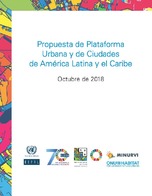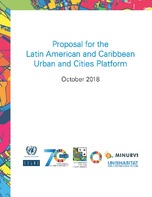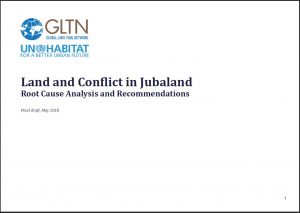Location
UN-Habitat is the United Nations programme working towards a better urban future.
Its mission is to promote socially and environmentally sustainable human settlements development and the achievement of adequate shelter for all. Cities are facing unprecedented demographic, environmental, economic, social and spatial challenges. There has been a phenomenal shift towards urbanization, with 6 out of every 10 people in the world expected to reside in urban areas by 2030. Over 90 per cent of this growth will take place in Africa, Asia, Latin America, and the Caribbean. In the absence of effective urban planning, the consequences of this rapid urbanization will be dramatic. In many places around the world, the effects can already be felt: lack of proper housing and growth of slums, inadequate and out-dated infrastructure – be it roads, public transport, water, sanitation, or electricity – escalating poverty and unemployment, safety and crime problems, pollution and health issues, as well as poorly managed natural or man-made disasters and other catastrophes due to the effects of climate change. Mindsets, policies, and approaches towards urbanization need to change in order for the growth of cities and urban areas to be turned into opportunities that will leave nobody behind. UN-Habitat, the United Nations programme for human settlements, is at the helm of that change, assuming a natural leadership and catalytic role in urban matters. Mandated by the UN General Assembly in 1978 to address the issues of urban growth, it is a knowledgeable institution on urban development processes, and understands the aspirations of cities and their residents. For close to forty years, UN-Habitat has been working in human settlements throughout the world, focusing on building a brighter future for villages, towns, and cities of all sizes. Because of these four decades of extensive experience, from the highest levels of policy to a range of specific technical issues, UN-Habitat has gained a unique and a universally acknowledged expertise in all things urban. This has placed UN-Habitat in the best position to provide answers and achievable solutions to the current challenges faced by our cities. UN-Habitat is capitalizing on its experience and position to work with partners in order to formulate the urban vision of tomorrow. It works to ensure that cities become inclusive and affordable drivers of economic growth and social development.
Members:
Resources
Displaying 26 - 30 of 224GLII Briefing Note: Status of Land Indicators, SDGs Progress 2019 and Related Efforts
The 2030 Agenda for Sustainable Development provides a conceptual framework of 17 goals and 169 targets. An abundance of interlinkages exists between them. Land targets are core to achieving most of the SDGs including poverty eradication, food security, gender equality and empowerment of women, adequate housing and urban development, mitigating and adapting to climate change, reducing and preventing land degradation, and fostering peace and stability for prosperity.
Metadata on SDGs Indicator 11.7.1
Goal 11: Make cities and human settlements inclusive, safe, resilient and
sustainable.
Target 11.7: Providing universal access to safe, inclusive and accessible,
green and public spaces, in particular for women and children, older
persons and persons with disabilities.
Indicator 11.7.1: Average share of the built-up area of cities that is open
space for public use for all, by sex, age and persons with disabilities
Propuesta de Plataforma Urbana y de Ciudades de América Latina y el Caribe
Este documento preparado por la Comisión Económica para América Latina y el Caribe (CEPAL) en cooperación con el Programa de las Naciones Unidas para los Asentamientos Humanos (ONU-Hábitat) y el Foro de Ministros y Máximas Autoridades del Sector de la Vivienda y el Urbanismo de América Latina y el Caribe (MINURVI) en el marco de la colaboración para la implementación de la Nueva Agenda Urbana en la región de América Latina y el Caribe, propone la construcción de una Plataforma Urbana y de Ciudades de América Latina y el Caribe como un instrumento para facilitar el seguimiento y monitoreo de
Proposal for the Latin American and Caribbean Urban and Cities Platform
This document, prepared by the Economic Commission for Latin America and the Caribbean (ECLAC), in cooperation with the United Nations Human Settlements Programme (UN-Habitat) and the Forum of Ministers and High-Level Authorities on Housing and Urban Development in Latin America and the Caribbean (MINURVI), within the collaborative framework for the implementation of the New Urban Agenda in the Latin American and Caribbean region, presents a proposal for the development of the Latin American and Caribbean Urban and Cities
Land and Conflict in Jubaland : Root Cause Analysis and Recommendations
The aim of the study is to investigate the land-related causes of conflict in the Jubaland State of Somalia. The study findings are expected to guide the work of the UN in peace building and land conflicts management and to inform land policy processes and other land governance interventions in Jubaland and Somalia as a whole.
The study has three specific objectives:




